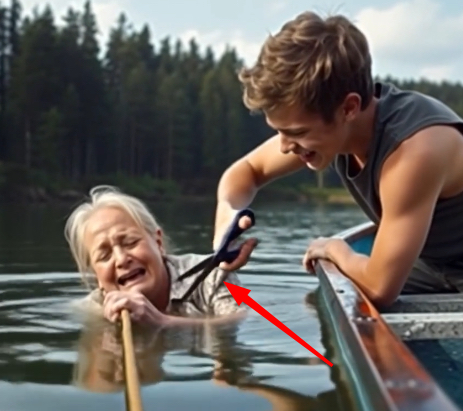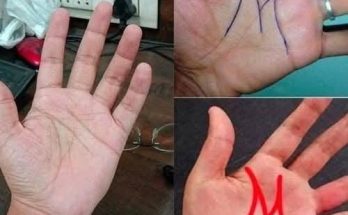My grandson shoved me off the dock, laughing as I struggled under the water. “Stop

My grandson shoved me off the dock, laughing as I struggled under the water. “Stop exaggerating!” my daughter-in-law scoffed when I crawled out, gasping. To them, I was just a frail old woman—useful only for my money, too weak to resist. So I let them believe it. I acted forgetful, clumsy, confused. I overheard them whispering about sending me to a nursing home, calling me a burden. What they didn’t know was that I was recording every word, every insult. By the time they realized my accounts were empty, they panicked and called the police. But the file of evidence I left behind made sure their nightmare was only beginning….
The lake was cold, but the betrayal was colder. Eleanor Hastings, seventy-four, had funded every milestone of her son’s family—the down payment on their suburban Atlanta home, the private school for their child, even the shiny SUV her daughter-in-law loved to flaunt. Yet that afternoon, on what they called a “family picnic,” her seven-year-old grandson Tyler shoved her off the dock. It was supposed to be a harmless prank, but she sank beneath the surface, lungs burning, while his giggles echoed above. “Don’t be so dramatic!” sneered Vanessa, Eleanor’s daughter-in-law, when Eleanor clawed her way back up the ladder, gasping and shivering. “He’s just a kid. You’re fine.” But Eleanor’s trembling wasn’t from the water alone. It was from realization these people she’d trusted saw her as weak, disposable. In the weeks after, the insults sharpened.
Vanessa rolled her eyes whenever Eleanor misplaced her reading glasses. “She’s losing it,” she whispered to her husband, Mark, Eleanor’s only son. Mark nodded, too busy scrolling through his phone to defend his mother. “She’s a liability. We’ll have to put her in a home,” Vanessa muttered. They thought Eleanor didn’t hear. She always did. So Eleanor played along. She let her hands shake a little longer at dinner. She “forgot” where she left her wallet. She allowed them to believe the narrative of a fading, senile widow. But behind her bedroom door she was methodical—recording phone conversations, photographing bruises from “accidental” bumps, cataloging every instance of neglect. She even installed a tiny voice recorder in the living room lamp. And quietly, she began moving her money. Over months she closed accounts, converted savings, and transferred everything into a secure trust only she controlled. Her family assumed her wealth was untouched. They were wrong.
The day came when Eleanor didn’t show up for breakfast. Mark found her room empty, bed neatly made, suitcase gone. By afternoon, Vanessa was on the phone with the police, her voice high-pitched with mock concern. “Our mother’s missing! She’s frail, confused—she might hurt herself!” They never mentioned the money. But Eleanor had left more than an empty room. In a sealed envelope addressed to Detective Laura Martinez, she’d compiled months of evidence: recordings, financial statements, and a letter explaining how her own family had plotted to discard her like garbage. By the time officers arrived, their “missing” victim had become their star witness—though she was nowhere to be found.

The lake was cold, but the betrayal was colder. Eleanor Hastings, seventy-four, had always been the backbone of her son’s family—funding every milestone with generous gifts. She had paid the down payment on their suburban Atlanta home, enrolled their young son in a prestigious private school, and even purchased the shiny SUV that her daughter-in-law, Vanessa, loved to flaunt around town. Despite her constant support, that afternoon marked a chilling turning point. During what was supposedly a “family picnic,” her seven-year-old grandson, Tyler, shoved her off the dock. While it was meant to be a harmless prank, Eleanor sank beneath the surface, her lungs burning for air, as Tyler’s giggles echoed above.
“Stop exaggerating!” Vanessa sneered when Eleanor clawed her way back up the ladder, gasping and shivering, trying to regain her dignity and breath. “He’s just a kid. You’re fine.” But Eleanor’s trembling wasn’t just from the icy water—it was from the cold realization that the people she’d trusted and supported saw her as weak and disposable.
In the weeks that followed, the insults sharpened like daggers. Vanessa rolled her eyes whenever Eleanor misplaced her reading glasses. “She’s losing it,” she whispered to her husband, Mark, who was too engrossed in his phone to defend his mother. “She’s a liability. We’ll have to put her in a home,” Vanessa muttered. They thought Eleanor didn’t hear. But she always did.
Eleanor decided to play along. She let her hands shake a little longer at dinner. She pretended to forget where she left her wallet. She allowed them to believe the narrative of a fading, senile widow. Yet, behind her bedroom door, she was anything but weak or confused. She was methodical, recording phone conversations, photographing bruises from “accidental” bumps, and cataloging every instance of neglect. She even installed a tiny voice recorder in the living room lamp.
Quietly, Eleanor began moving her money. Over months, she closed accounts, converted savings, and transferred everything into a secure trust that only she controlled. Her family, assuming her wealth remained untouched, remained oblivious. They were wrong.
The day came when Eleanor didn’t show up for breakfast. Mark found her room empty, bed neatly made, suitcase gone. By afternoon, Vanessa was on the phone with the police, her voice high-pitched with mock concern. “Our mother’s missing! She’s frail, confused—she might hurt herself!” Conveniently, they never mentioned the money.
But Eleanor had left more than just an empty room. In a sealed envelope addressed to Detective Laura Martinez, she had compiled months of damning evidence: recordings, financial statements, and a detailed letter outlining her family’s neglect and plans to discard her like an unwanted burden. By the time officers arrived, their “missing” victim had become their star witness—though she was nowhere to be found.
Eleanor had slipped away, leaving nothing but a trail of justice behind. She had outwitted those who underestimated her, turning the tables with a strategic brilliance they couldn’t have imagined. Her son and his wife would face their reckoning, but Eleanor was free. Somewhere far from the toxic whispers and faux concerns, she could finally breathe again, ready to live on her own terms, unburdened by familial betray



